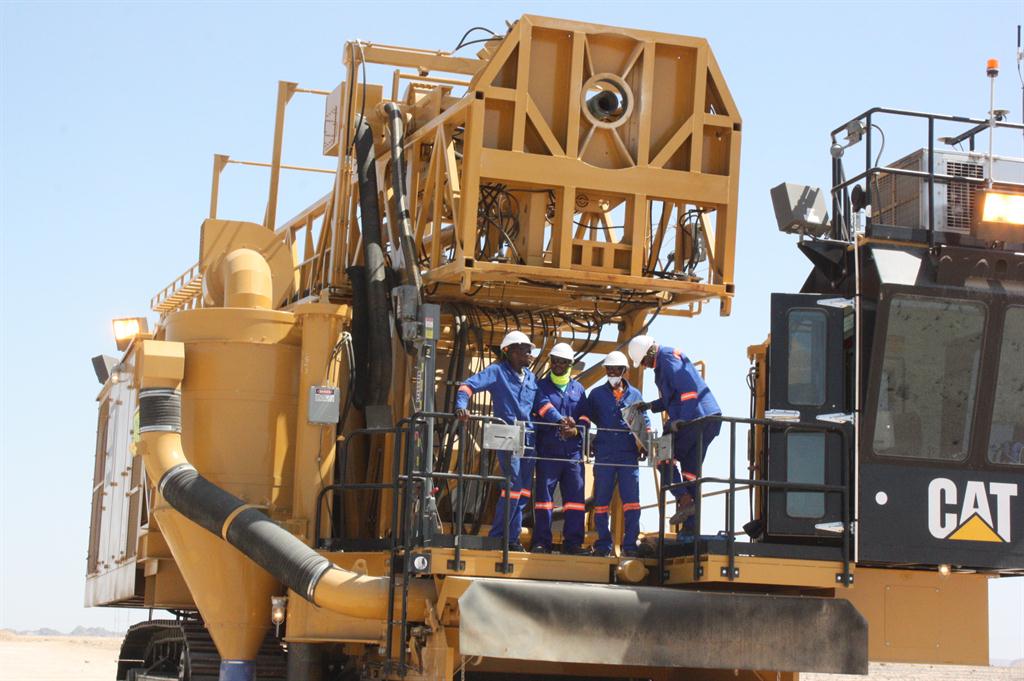Look beyond retrenchments, mines minister says
The minister of mines, Tom Alweendo, feels that mining companies should not automatically consider retrenchments when they are struggling but should also look at other options such as reduced production times and salaries.
He says when commodity prices are low, as is now the case in the uranium sector, industry stakeholders should consult openly and with trust to avoid job losses.
“Unfortunately the uranium price is still depressed, now at about US$24 per pound, especially when compared to US$65 per pound in 2011. This makes it very difficult for the uranium mines. In such situations all relevant parties, which include the government, employees and their employers, need to engage effectively in alleviating the problem,” he said.
Alweendo emphasised that retrenchments should not be seen as the only viable option for struggling mining companies and that other avenues should be explored.
“Retrenchments should not be the first option; other options could be reduction of time worked or reduction of salary. But this can only happen when there is mutual trust between the parties.”
According to him, his ministry will work towards improving working conditions for miners.
“The ministry for its part will continue to improve the framework under which mineral exploration takes place; the more minerals are discovered, the better for employment in the mining sector,” he said.
The Mineworkers Union of Namibia recently expressed its displeasure at the loss of 800 jobs caused by the closure of the Langer Heinrich uranium mine.
“The Mineworkers Union of Namibia (MUN) Southern Region has learned with extreme shock that our mining industry is going onto its knees. Retrenchments and outsourcing are becoming the order of the day,” the union said in a strongly worded statement.
“It is becoming normal that every day and every month people are continuously losing their jobs. The current trend is becoming worrisome to us and it needs to come to an end. The reasons these capitalists keep on sending young Namibians to the streets are not good enough or are even unreasonable. In most cases it is just for the sake of maximising their profits and cutting wage bills.
“Most of the retrenchments in the mining industry are not based on economic reasons but rather a strategy for companies to maximise their profit and cut salaries,” the union charged.
OGONE TLHAGE
He says when commodity prices are low, as is now the case in the uranium sector, industry stakeholders should consult openly and with trust to avoid job losses.
“Unfortunately the uranium price is still depressed, now at about US$24 per pound, especially when compared to US$65 per pound in 2011. This makes it very difficult for the uranium mines. In such situations all relevant parties, which include the government, employees and their employers, need to engage effectively in alleviating the problem,” he said.
Alweendo emphasised that retrenchments should not be seen as the only viable option for struggling mining companies and that other avenues should be explored.
“Retrenchments should not be the first option; other options could be reduction of time worked or reduction of salary. But this can only happen when there is mutual trust between the parties.”
According to him, his ministry will work towards improving working conditions for miners.
“The ministry for its part will continue to improve the framework under which mineral exploration takes place; the more minerals are discovered, the better for employment in the mining sector,” he said.
The Mineworkers Union of Namibia recently expressed its displeasure at the loss of 800 jobs caused by the closure of the Langer Heinrich uranium mine.
“The Mineworkers Union of Namibia (MUN) Southern Region has learned with extreme shock that our mining industry is going onto its knees. Retrenchments and outsourcing are becoming the order of the day,” the union said in a strongly worded statement.
“It is becoming normal that every day and every month people are continuously losing their jobs. The current trend is becoming worrisome to us and it needs to come to an end. The reasons these capitalists keep on sending young Namibians to the streets are not good enough or are even unreasonable. In most cases it is just for the sake of maximising their profits and cutting wage bills.
“Most of the retrenchments in the mining industry are not based on economic reasons but rather a strategy for companies to maximise their profit and cut salaries,” the union charged.
OGONE TLHAGE





Comments
Namibian Sun
No comments have been left on this article